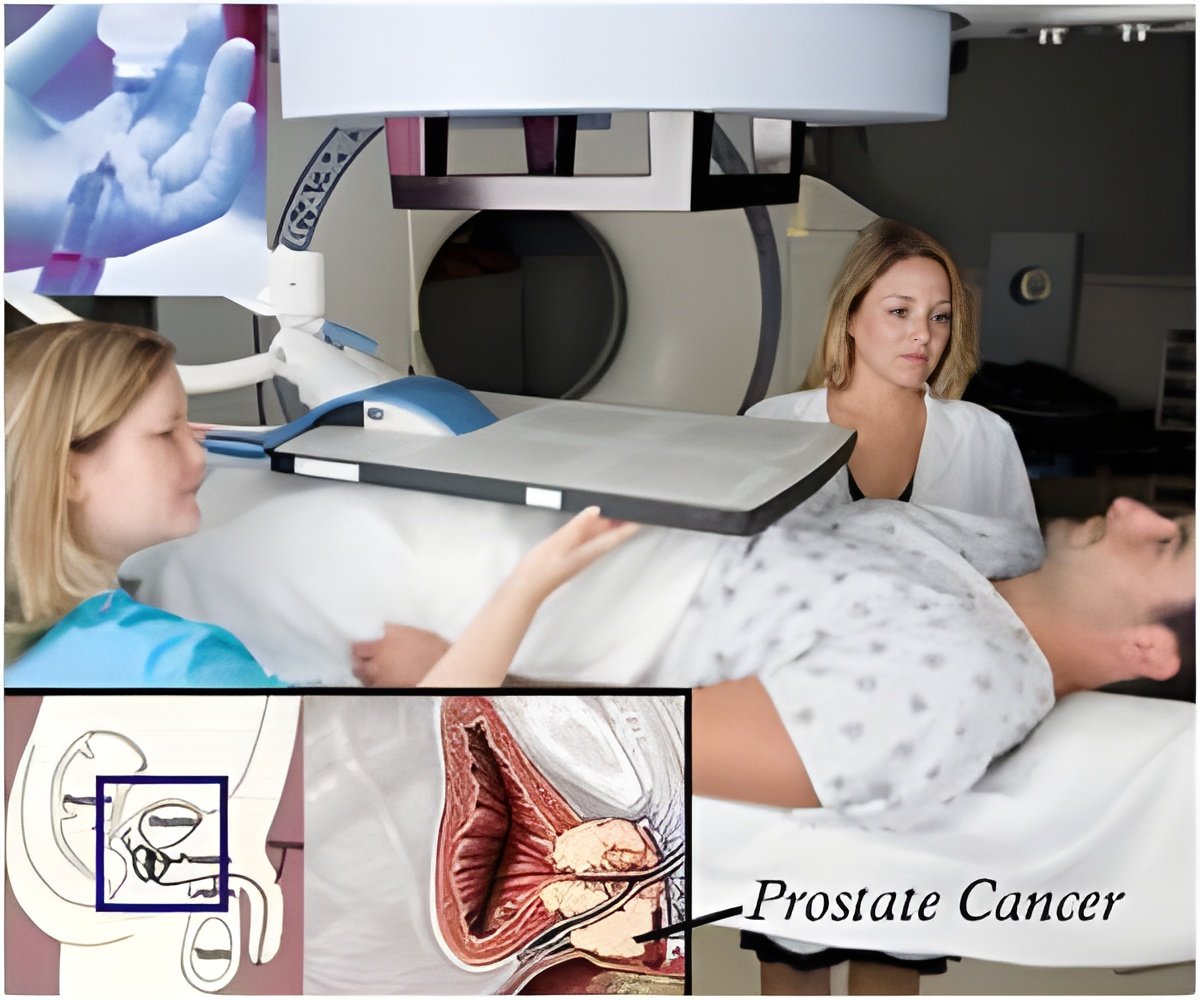Researchers were able to measure free prostate-specific antigen in prostate cancer models thanks to a new, noninvasive imaging tool.

Results of this paper were presented here at an AACR Annual Meeting 2012 press conference on Saturday, March 31, 2012, at 4:00 p.m. CT in Room 20 A/B/C of the Hyatt Conference Center, adjacent to McCormick Place.
If further validated, the use of this tool, a prostate cancer-specific radiotracer, could potentially aid in treatment planning on an individualized patient basis, according to Michael J. Evans, Ph.D., research fellow in the Human Oncology and Pathogenesis Program at Memorial Sloan-Kettering Cancer Center in New York, N.Y., and colleagues.
A radiotracer is a small amount of a compound that has been "tagged" with a radionuclide. Patients are injected with the radiotracer, which aids in visualizing the tumor using positron emission tomography (PET).
In this study, Evans and colleagues examined the effects of 89Zr-5A10, the first radiotracer designed specifically to target free prostate-specific antigen (PSA), a known biomarker of prostate cancer that provides a more accurate measure of risk when compared with serum PSA.
"Once injected, the use of 89Zr-5A10 allows physicians to measure different biological properties among metastatic lesions within the same patient, which a serum biomarker cannot achieve," Evans said.
Advertisement
The radiotracer also helped researchers identify metastatic bone lesions related to the primary prostate cancer. Traditional bone scans are unable to discriminate between malignant and nonmalignant lesions.
Advertisement
"The ultimate goal is to be able to predict the response of patients to new and existing therapies at an early stage, thereby personalizing their treatment and improving outcomes," Evans said.
Given the success of this preclinical work, Evans and colleagues hope to translate the 89Zr-5A10 platform for a human trial by 2013.
# # #
Press registration for the AACR Annual Meeting 2012 is free to qualified journalists and public information officers: http://www.aacr.org/PressRegistration.
Follow the AACR on Twitter: @aacr #aacr
Follow the AACR on Facebook: http://www.facebook.com/aacr.org
About the AACR
Founded in 1907, the American Association for Cancer Research (AACR) is the world''s first and largest professional organization dedicated to advancing cancer research and its mission to prevent and cure cancer. AACR''s membership includes 34,000 laboratory, translational and clinical researchers; population scientists; other health care professionals; and cancer advocates residing in more than 90 countries. The AACR marshals the full spectrum of expertise of the cancer community to accelerate progress in the prevention, biology, diagnosis and treatment of cancer by annually convening more than 20 conferences and educational workshops, the largest of which is the AACR Annual Meeting with more than 18,000 attendees. In addition, the AACR publishes seven peer-reviewed scientific journals and a magazine for cancer survivors, patients and their caregivers. The AACR funds meritorious research directly as well as in cooperation with numerous cancer organizations. As the Scientific Partner of Stand Up To Cancer, the AACR provides expert peer review, grants administration and scientific oversight of individual and team science grants in cancer research that have the potential for patient benefit. The AACR actively communicates with legislators and policy makers about the value of cancer research and related biomedical science in saving lives from cancer.
For more information about the AACR, visit www.AACR.org.
Source-Newswise



![Prostate Specific Antigen [PSA] & Prostate Cancer Diagnosis Prostate Specific Antigen [PSA] & Prostate Cancer Diagnosis](https://images.medindia.net/patientinfo/120_100/prostate-specific-antigen.jpg)










